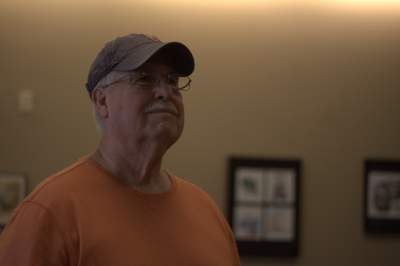 By Justin Katz | gargoyle@flagler.edu
By Justin Katz | gargoyle@flagler.edu
With the country still reeling from the economic recession, recent high school graduates are not the only ones looking for a college degree.
More colleges are now receiving applications from individuals who graduated high school three to four decades ago. Data collected by the National Center for Education Statistics (NCES) concluded that 3.9 million college students who enrolled in 2010 were 35 or older. Since 2006, the number has jumped 20 percent.
Deb Shaw, 61, a junior at Flagler College, graduated high school in 1970. At the time, she was concerned about the safety at college campuses due to the Kent State shootings. So instead, she joined the working world by getting a job at Digital Equipment Corporation (DEC).
“This was a time where you thought you’d have a job for life,” said Shaw.
Shaw worked at DEC in the early 70s, until she became a stay-at-home mom. In 1985, she returned to work at DEC for 10 years before going to AOL. After working for at AOL for 13 years, she made the choice to return to school after facing layoffs.
“When you work 70 hours a week, and you’re going a hundred miles per hour, you can’t just stop,” she said.
Shaw’s work experience played a part in choosing where she decided to go back to school. She said she always visited St. Augustine while checking in with her colleagues in Jacksonville.
“I knew I wanted to be near the ocean and the history. I loved Flagler the second I saw it,” she said.
As a history major with a minor in anthropology, Shaw is still going a hundred miles an hour, but welcomes the changes that have come along with it.
“It’s nice to get a paycheck, but it’s also nice to get an A,” said Shaw.
Money however, did not play a large role in Shaw’s choice to return to school. After selling her house in Northern Virginia, she bought a smaller house in Saint Augustine. By putting money away during her working years, she is currently able to live off savings.
Other students like Shaw have their past to thank for bringing them to Flagler. Michael Denney, 69, a junior at Flagler College, has served his country, raised a family and had a successful career with Delta Airlines, but is now back at school to earn a bachelor’s degree in sociology. 
In 1974, Denney returned from the Vietnam War. Veteran’s Affairs (VA) paid for him to go to college, but was forced to put his education on the back-burner and earn only an associate’s degree in order to raise his family. With his children fully grown, he began looking at retirement options.
“I went to one of these retirement homes, and I’m probably the youngest guy there. I thought to myself, this is the most miserable place I’ve ever been in,” Denney said. “The VA asked me, ‘what do you want do? When was the happiest time in your life?’ I said when I was going to school.”
But getting to his first day of classes was not easy for Denney. Due to handling agent orange, a dangerous chemical used in the war, he now copes with permanent health issues such as joint stiffness, problems concentrating and third stage renal disease.
“It’s a real catch-22, because I’m in a program called ‘vocational rehabilitation.’ They [the VA] won’t send you to school unless you’re sick, but if you’re too sick, then even if you do go to school, you can’t concentrate enough to do well in the classes,” said Denney.
When looking for schools, Denney recalled his parents taking him to St. Augustine as a child on vacation. He began to research Flagler and one thing in particular drew him in.
“The professors here want to help you,” said Denney.
While Flagler already has many others like Shaw and Denney, more can be expected in the future. The NCES predicts that the number of older college students will jump to 4.1 million by the year 2015.
The Public Administration program at Flagler is in place to accommodate that influx of students.
The program is aimed at local civil service workers who want to complete their bachelor’s degree. It came about through former college president and current Chancellor William L. Proctor discussing ideas with the local sheriff. Currently in its 10th year, the program was designed to be financially accessible to students despite the economy.
“You have a real-time and real-world impact on their careers, agencies and communities as they utilize the knowledge and skills they acquire and strengthen in our program,” said Joe Saviak, assistant director of the program and an associate professor.
Regardless of the cost, Saviak believes the small class sizes and one-on-one relationships with professors are a part of what has made the program a success.
“Students develop strong relationships with the professors,” Saviak began. “Every week, I get emails and phone calls from our alumni about new promotions, and finishing graduate degrees.”
Despite the changes older students face when coming back to school, Shaw has been pleased with the experience.
“When I got to Flagler, I was scared and wondering how accepted I’d be, but now I’m just one of the students,” she said.
Denney is also enjoying his time at Flagler.
“I’m very proud to go to this college,” he said. “I enjoy being with the students, it makes me feel young and it makes me feel like one of you.”



Be the first to comment on "Back to school: A new generation"